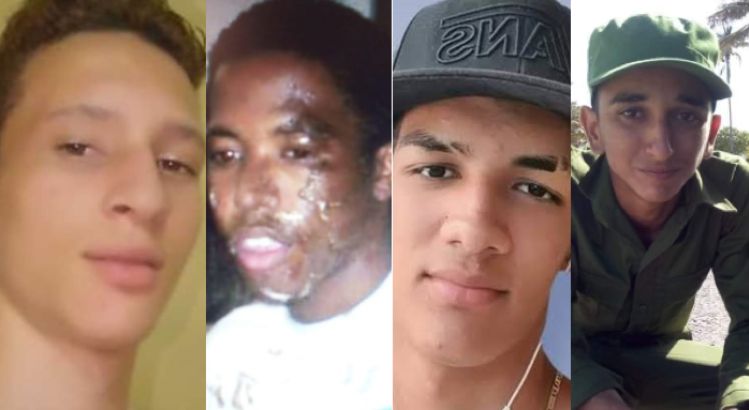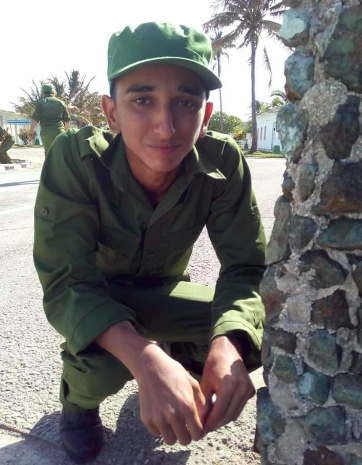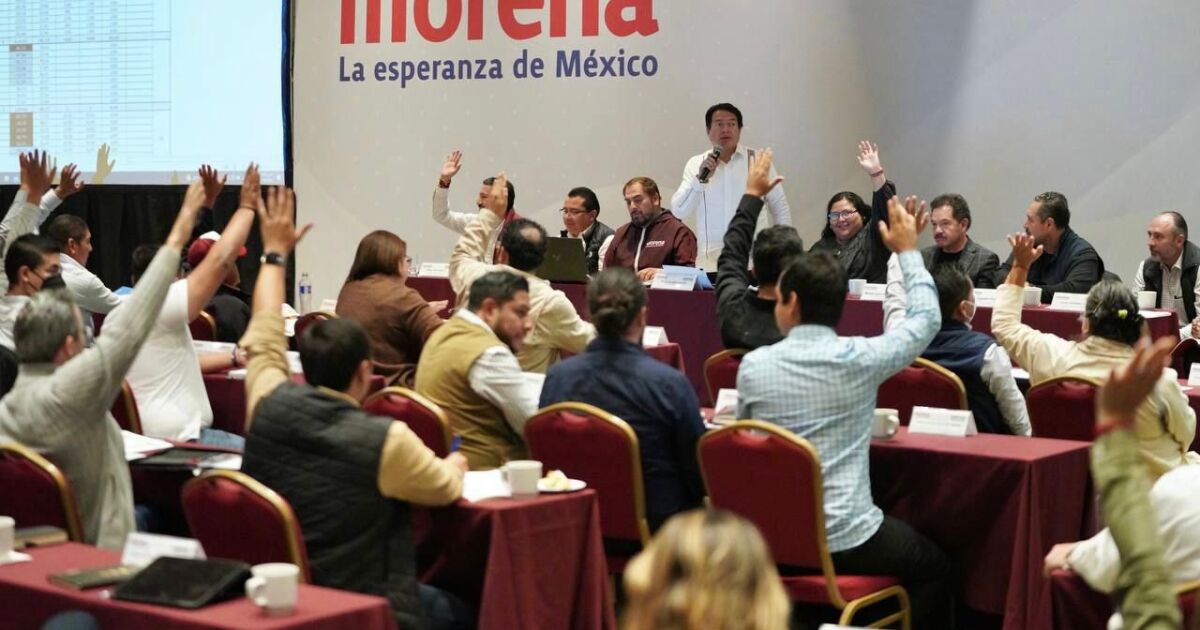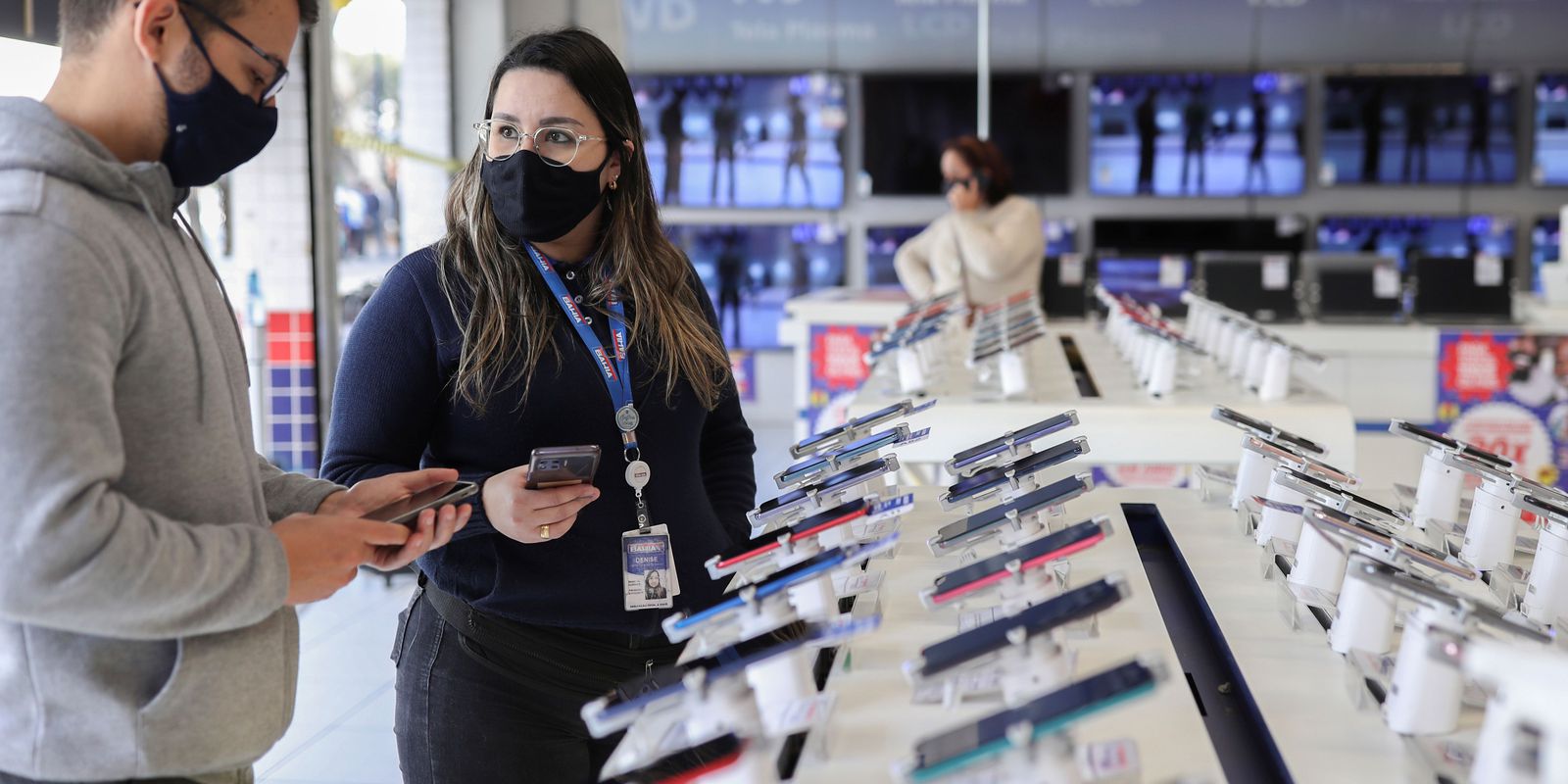MEXICO CITY.- “On July 21, 2018, a Saturday, I have not forgotten, a group of soldiers came to my house to tell me that my son had died in military service. Ariel was my only son, the center of everything. That’s where my life ended.”
Odalis Cardero was then 38 years old and an enterprising and cheerful woman. She currently suffers from depressive crises and has attempted three times against her life. “When they gave me the news, I lost my sanity and the doctors admitted me to a psychiatric hospital. I was there for several days but my family decided that I should receive the treatment at home under their care. Four years have passed but I have not recovered. I don’t know if I ever will. It is a great pain.”
The official cause of death of Ariel Díaz Cardero, the son of Odalis, had three versions that did not convince his family. The first was that a sudden heart attack killed him at the age of 18. Then, in his death certificate they read: “unknown cause”. Three months later, and due to the claims, an investigation ruled that he had suffered from myocarditis (inflammation of the middle layer of the heart wall).
However, the circumstances of the boy’s death remain a mystery. Not only because Ariel was a healthy young man, but because they were not allowed to see his body or be alone with him.
Ariel was buried with someone else’s clothes, which the military chose. The one that his family brought and they asked to place him did not touch his body. Nor did they allow his parents and uncles to be alone with the body. Before each request from them to check the body of the boy, or at least to let them say goodbye in private, the response of the officers was an immovable silence.
The funeral took place under imposed militarization and when neighbors and friends expressed anger at the presence of soldiers, in a clear act of intimidation, a bus full of recruits who did not even know Ariel arrived.
To this day his family does not know what really happened to him.
According to the national defense law, in Decree-Law 224, male citizens between the ages of seventeen and twenty-eight must complete Active Military Service for a period of two years. In the case of those who obtained university places, this period is reduced by half, but it is still forced. Military service has been mandatory in Cuba since June 1963, in response, according to the government, to a possible US invasion that has never occurred.
Instead, what does happen every year is that thousands of young people, some minors, leave their homes for military or work units that operate despotic and imposing command structures. In these spaces, the boys are not only exposed to degrading treatment that can affect them irreversibly, but also lead to fatal outcomes.
Despite the fact that the Cuban government does not expose statistics on the matter and silences the issue in the media, Ariel Díaz is not an isolated case. Several records of deaths in military service have been published by the independent press in recent years.
In most of the documented cases, the official cause of death was self-inflicted injuries.
What drives them to suicide?
A year after the death of his son Annier, Alfredo González still does not know why he took his own life. He will probably never know. His son spent just 13 days as a recruit in the Combinado del Sur prison in Matanzas. On July 4, 2021, he shot himself with the same rifle that had been placed in his hands so that he would be on guard. Alfredo thinks that he may have felt fear or anxiety.
Despite their multiple claims, the authorities disclaim any responsibility. They have told him that among all the boys who did the previous one together, only Annier committed suicide, and that therefore it is not their direct responsibility. His son was apparently a weak link and did not resist. Not a day has gone by in these nearly thirteen months that she hasn’t wondered what happened that night.
In the early hours of May 5, 2020, at the Combinado del Este, Ruben Armando Ponce Monteagudo also shot himself. The boy had been transferred in March from Villa Clara, where he lived, to the capital. About 250 kilometers separated him from his family, whom he could not see while he was in the service, since interprovincial mobility was restricted by the pandemic.
“When they gave him passes, he went to the house of some uncles who live in Havana, they noticed him sad, but we thought it was transitory,” explains his sister, Elizabeth Ponce. Everything indicates that the trigger was that a piece of a rifle was lost in his guard. “The military told us that he seemed very affected because that would bring him problems.”
How much pressure must this boy have felt to shoot himself at the loss of a single piece? How much fear?
“There is a psychological cost for these young people, to a greater or lesser extent depending on the particularities of the case. Suddenly they suffer a forced separation from their family and friends”, explains psychiatrist Emilio Arteaga.
“The boys are crushed in two ways. On the one hand, they are under the orders of soldiers who mistreat them, humiliate them, take away their passes for whatever reason, and in general subject them to humiliation. On the other hand, they also suffer from group pressure. There they will have to live with other boys who are in psychological conditions similar to theirs, and who do not feel well either because they are being held against their will. In these groups emerges the typical abuser who submits others. In general, they are adolescents or young people who face an adverse environment and that not all of them manage to assimilate.
suicide constitutes the third cause of death for this age group in Cuba. Academic research in this regard places bullying, depression, belonging to dysfunctional families and drug use among the main causes.
Arteaga, who has cared for young people with psychological sequelae as a result of military service, points out that emotional alterations appear during this period, such as sleep disorders, impulse control, depressive tendencies, stress and behavioral changes. The latter case can trigger aggressive behavior.
“There is already a base state of annoyance that leads you to respond to any incident with little impulse control and violence. Violence that can be directed outwards or inwards. That is, you can attack others or yourself until you reach self-harm or suicide”.
There is no option to escape
The mandatory nature of the Cuban Military Service was protected in the 2019 Constitution, which prohibited the use of conscientious objection to evade compliance. Young people who refuse to join, arguing, for example, that taking up arms is not compatible with their religion, are prosecuted. As it happened in December 2020 with Oscar Kendri Fial in Santiago de Cuba. A practice that continues to happen.
This July 20, the activist of the Patriotic Union of Cuba Raisa Velázquez was summoned by the police after the absence of her son, Josué Menéndez, for the medical check-up prior to military service. The young man does not want to sit up and she supports him. “We are against this government and my son will not be used to repress or follow orders from the dictatorship. In addition, there are frequent reports that young people die in those facilities and we are afraid that something will happen to them, ”Raisa explained to CubaNet.
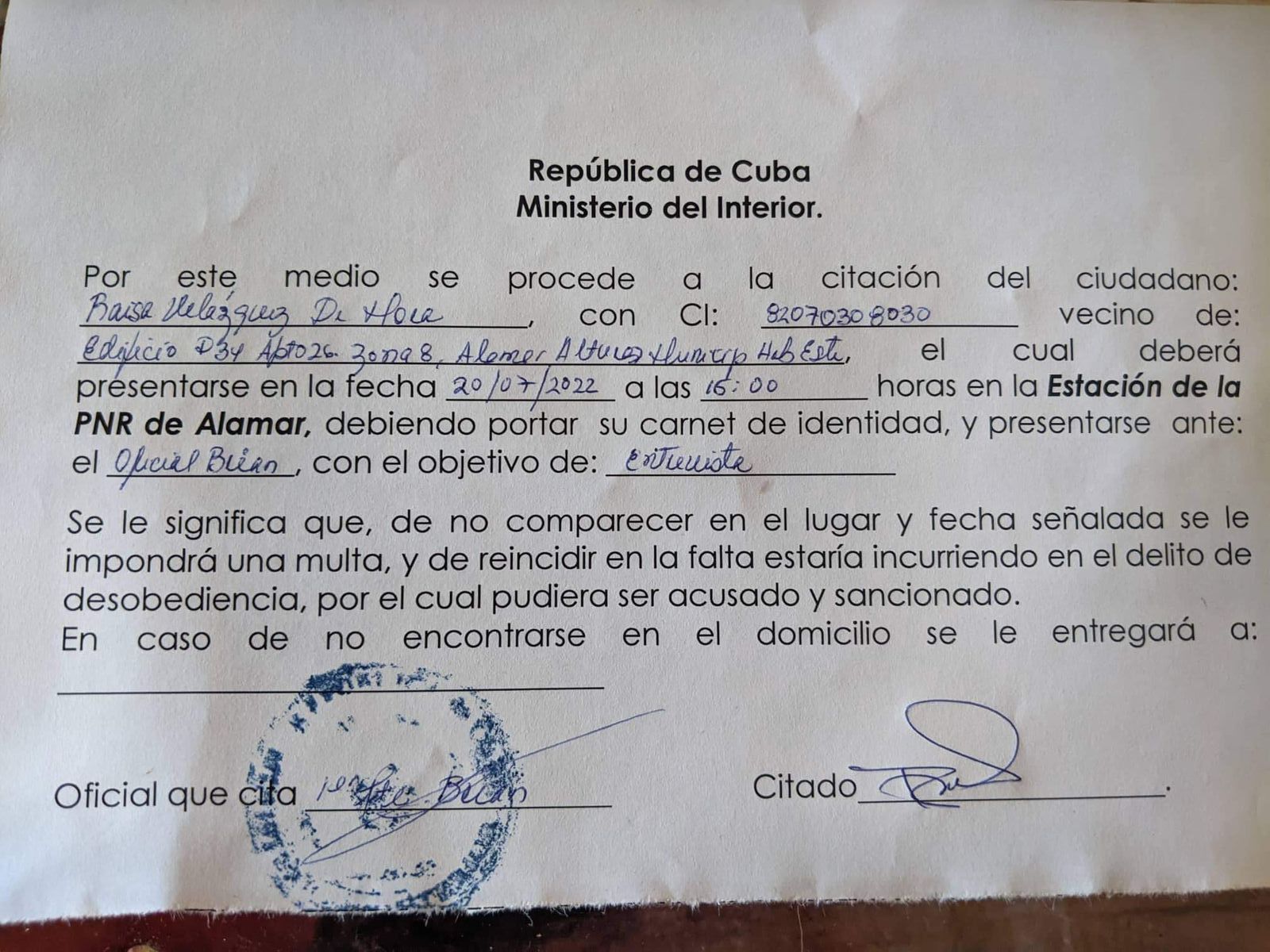
However, the law is clear: if he continues to refuse to recruit, Josué will be prosecuted and could end up in prison. Refusal does not exempt him, nor does frequent self-harm guarantee recruits that they will be able to escape.
The journalist cut his hand with a slash Rolando Leyva until exposing the bone when he was doing military service. To mutilate oneself at that time seemed easier than to continue being subjected to the hard days in which hundreds of young people are used in FAR facilities as forced members of the Youth Labor Army. Before, he had feigned appendicitis, and being healthy he allowed himself to be operated so that he would be allowed to spend a month at home, recovering.
Self-harm in order to gain release or at least a short break is widespread among recruits. Even among themselves they share recommendations on how to break bones, contract conjunctivitis, or swallow blades wrapped in thread.
Self-harm is so frequent that in 2019 the People’s Supreme Court, through an extraordinary publication in the Official Gazette, announced that recruits who resorted to this practice would begin to be sanctioned. The entity acknowledged that the measure responded to the “increase in self-harm acts committed by soldiers.”
On this measure, Arteaga opines: “Boys who self-harm putting themselves in danger should be immediately dismissed.” The psychiatrist describes as “criminal” that a doctor does not assume a self-aggression of this magnitude with the seriousness that it carries and denies the need for demilitarization. However almost nothing allows these guys to evade the SMA, except death.
The mothers
Dayron Carbonell died after 35 days fighting for his life admitted to the Hermanos Amejeiras hospital. He arrived there in 2010 after handling chemical products and war materials with a very strong odor while in military service, without protection. Despite his allergy, he was placed in an underground shelter with a high degree of humidity and very dirty. Having boots in poor condition, he worked barefoot. Her mother, Bárbara Ramos, was denied her medical history and harassed for reporting the death of her son to the independent press.
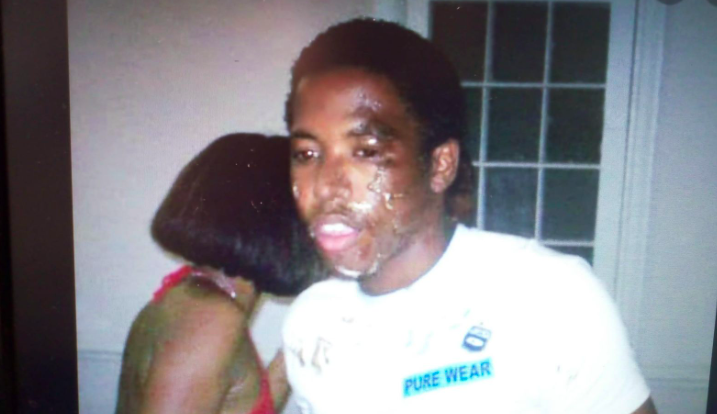
Aniuska Monteagudo Solís, 56, has managed to survive Rubén’s suicide thanks to the church she started visiting after losing her son. She there she has found strength and a little resignation. Only in this way has she remained sane.
Odalis Cardero, Ariel’s mother, has been recommended by her psychiatrist to have another child. She refuses. She says that she is afraid, that she is overwhelmed by the idea that she has to leave the house, that they do something to her. She partly takes responsibility for Ariel’s death, because she wasn’t with him and couldn’t protect him.
***Due to the lack of transparency on the subject and the absence of systematized information, CubaNet has built this incipient database where we register the deaths of young people while they were serving Active Military Service.
This is just a subregistry that will continue to be updated. As sources we have used notes from the media and information compiled for this investigation from family interviews.
If you want to share with us other stories you can write to: [email protected]
Receive information from CubaNet on your cell phone through WhatsApp. Send us a message with the word “CUBA” on the phone +1 (786) 316-2072, You can also subscribe to our electronic newsletter by giving click here.

